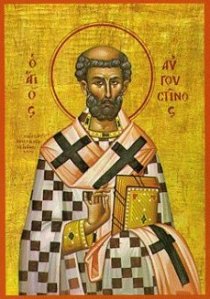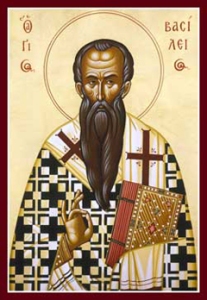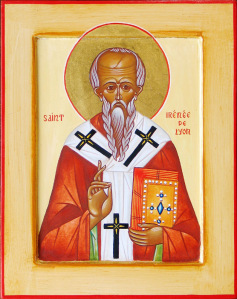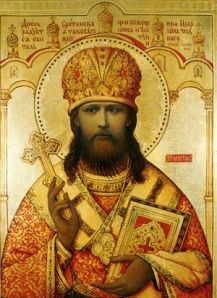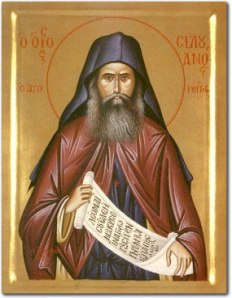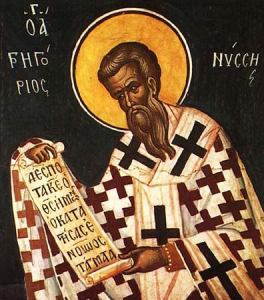 What then is that tabernacle not made with hands which was shown to Moses on the mountain and to which he was commanded to look as to an archetype so that he might reproduce it in a handmade structure?
What then is that tabernacle not made with hands which was shown to Moses on the mountain and to which he was commanded to look as to an archetype so that he might reproduce it in a handmade structure?
God said, See that you make them according to the pattern shown you on the mountain.
Of what things not made with hands are these an imitation? And what benefit does the material imitation of those things Moses saw there convey to those who look at it?
Taking a hint from what has been said by Paul, who partially uncovered the mystery of these things, we say that Moses was earlier instructed by a type in the in mystery of the tabernacle which encompasses the universe.
This tabernacle would be Christ who is the power and the wisdom of God, who in his own nature was not made with hands, yet capable of being made when it became necessary for this tabernacle to be erected among us.
Thus, the same tabernacle is in a way both unfashioned and fashioned, uncreated in pre-existence but created in having received this material composition.
This one is the Only Begotten God, who encompasses everything in himself but who also pitched his own tabernacle among us.
Whenever the prophet looks to the tabernacle above, he sees the heavenly realities through these symbols. But if one should look at the tabernacle below, since in many places the Church also is called Christ by Paul, he would see the Church.
In this tabernacle both the sacrifice of praise and the incense of prayer are seen offered continually at morning and evening. The great David allows us to perceive these things when he directs the incense of his prayer in an odour of sweetness to God, performing his sacrifice through the lifting up of his hands.
The skin dyed red and the coverings made of hair, which add to the decoration of the tabernacle, are perceived respectively as the mortification of the sinful flesh and the ascetic way of life. By these the tabernacle of the church is especially beautified.
[…] If the interior, which is called the Holy of Holies, is not accessible to the multitude, let us not think that this is at variance with the sequence of what has been perceived. For the truth of reality is truly a holy thing, a holy of holies, and is incomprehensible and inaccessible to the multitude.
Since it is set in the secret and ineffable areas of the tabernacle of mystery, the apprehension of the realities above comprehension should not be meddled with; one should rather believe that they do exist and that they remain in the secret and ineffable areas of the intelligence.
Gregory of Nyssa (c 335 – after 394): The Life of Moses 170, 173-175, 184-188; CWS (1978) tr. Malherbe & Ferguson; from the Monastic Office of Vigils, Friday of the Third Week in Lent, Year 2.
